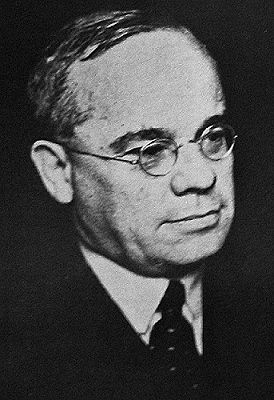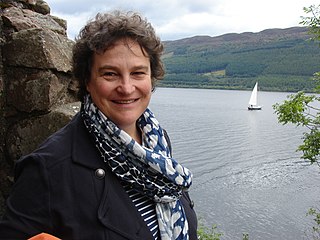Etienne van Heerden, born 3 December 1954, is a South African author.
Van Heerden was born in 1954, six years after the official advent of apartheid. His mother was an English speaking mathematics teacher. His father, an Afrikaans speaking merino stud breeder, farmed the family farm in the Karoo. Van Heerden was reared Afrikaans, with English reserved for use at home on Tuesdays, and learned from comics ordered from London.
Due to being born blind in the right eye, he was not called up for combat duty, but served as a dog handler, playing his alsatian at major festivals.
Van Heerden initially studied law, and was admitted to the South African Side Bar as attorney. He freelanced as deputy sheriff for the Civil Court, and moved about in the townships around Cape Town, dispensing civil summonses and learning a great deal about life in these suppressed communities. As a young practitioner, his clients were mostly from the black and coloured crime-ridden communities around Cape Town.
Van Heerden also lectured Legal Practice at the Peninsula Technikon and spent two years in advertising. At age thirty, with the birth of his eldest daughter, Van Heerden left the routine of a budding Cape Town advertising agency. He and his family relocated to northern Natal where he started out on his academic career in Literature at the University of Zululand. His PhD was a study on engagement and postmodernism.
During the 1980s he was member of a group of Afrikaans writers secretly meeting the banned ANC of Mandela and exiled writers at the (now famous) Victoria Falls Writers’ Conference, held in Zimbabwe.
Van Heerden is seen as member of a generation of Afrikaans artists who contributed significantly to opening up the Afrikaner psyche to change.
He regularly teaches at universities in Europe, and has been Writer in Residence at the University of Leiden in the Netherlands, and the University of Antwerp in Belgium. He was a member of the University of Iowa's prestigious International Writing Program in 1990, and has been back on visits to this university, of which he is an Honorary Fellow in Writing. He has regularly read his fiction at events such as the Edinburgh Festival in Scotland, the Winter Nights Festival in the Hague, Netherlands, the Time of the Writer Festival in Berlin, Germany, the Zimbabwe International Book Fair and other festivals and events internationally.
Despite at times at odds with the apartheid government, van Heerden never left South Africa permanently, and now teaches at the University of Cape Town, where he is the Hofmeyr Professor in the School of Languages and Literatures, and chairs the Afrikaans and Netherlandic Studies Section. His current activities at the University of Cape Town include the supervision of Creative Writing, where he has led a generation of young Afrikaans authors to published status, and the lecturing of courses in Literary Theory, Media Studies, and South African and Dutch Literature.
Van Heerden is married to Kaia, a practising doctor, and lives in Stellenbosch. The couple has two daughters, Imke and Menán.
Although he lives in the Western Cape, Van Heerden returns, in his writing, to the Karoo of his childhood. He describes this arid and mythological part of South Africa's deep interior is his own "landscape of the mind".
He serves on the board of directors of NB Publishers, which includes, amongst others, Kwela, Tafelberg, Best Books and Human and Rousseau publishers.
Van Heerden has published two books of poetry, two books of short stories, a collection of cabaret songs, theoretical and academic work, and novels. His activity spans a wide range – a syndicated columnist in the major three Afrikaans dailies, published countrywide in South Africa, his own program on satellite television, and founder-editorship of one of the few South African internet startups.

Breyten Breytenbach is a South African writer, poet, and painter who became internationally well-known as a dissident poet and vocal critic of South Africa under apartheid, and as a political prisoner of the National Party-led South African Government. Breytenbach is now informally considered by Afrikaans-speakers as their poet laureate and is one of the most important living poets in Afrikaans literature. He also holds French citizenship.

Jan Hendrik Hofmeyr was a South African politician and intellectual in the years preceding apartheid. In his lifetime he was regarded as one of the cleverest men in the country, and it was widely expected that he would eventually become Prime Minister of South Africa. He came from a well-known Afrikaner family; his uncle, also Jan Hendrik Hofmeyr but known affectionately as "Onze Jan" among fellow Afrikaners, was a famous figure in the Afrikaans language movement.
Ernst van Heerden was a leading Afrikaans poet.

Antjie Krog is a South African writer and academic, best known for her Afrikaans poetry, her reporting on the Truth and Reconciliation Commission, and her 1998 book Country of My Skull. In 2004, she joined the Arts faculty of the University of the Western Cape as Extraordinary Professor.

Marlene van Niekerk is a South African poet, writer, and academic. She is best known for her novels, the satirical tragicomedy Triomf (1994) and the Hertzog-winning Agaat (2004), which explore themes including the family, the change in power dynamics occasioned by the end of Apartheid, and inequalities of race, gender, and class. Van Niekerk is also an award-winning poet. She writes in her native tongue, Afrikaans, and teaches at Stellenbosch University.
Lettie Viljoen was a pseudonym of the South African author Ingrid Winterbach, who primarily writes in Afrikaans. She lives in Jamestown, Stellenbosch.
Elsabé Antoinette Murray Joubert OIS was a Sestigers Afrikaans-language writer. She rose to prominence with her novel Die swerfjare van Poppie Nongena, which was translated into 13 languages, as well as staged as a drama and filmed as Poppie Nongena.
Paul Roos Gymnasium is a public, dual medium high school for boys in the town of Stellenbosch in the Western Cape province of South Africa, which opened on 1 March 1866 as Stellenbosch Gymnasium. It is the 12th oldest school in the country.

Karel Schoeman was a South African novelist, historian, translator and man of letters. Author of twenty novels and numerous works of history, he was one of South Africa's most honoured writers. Schoeman wrote primarily in Afrikaans, although several of his non-fiction books were originally written in English. His novels are increasingly being translated into other languages, notably, English, French and Dutch.

South African literature is the literature of South Africa, which has 11 national languages: Afrikaans, English, Zulu, Xhosa, Sotho, Pedi, Tswana, Venda, Swazi, Tsonga and Ndebele.
The Hertzog Prize is an annual award given to Afrikaans writers by the Suid-Afrikaanse Akademie vir Wetenskap en Kuns, formerly the South African Academy for Language, Literature and Arts. It is the most prestigious prize in Afrikaans literature.
Etienne Leroux was an Afrikaans writer and a member of the South African Sestigers literary movement.
Adam Small was a South African writer who was involved in the Black Consciousness Movement and other activism. He was noted as a Coloured writer who wrote works in Afrikaans that dealt with racial discrimination and satirized the political situation. Some collections include English poems, and he translated the Afrikaans poet N P van Wyk Louw into English.
Albertha Magdalena Bouwer was a South African Afrikaans-writing journalist and author. She is best known for her series of children's stories about the experiences of a small girl called Alie growing up in the fictional location Rivierplaas in rural Free State. Late in life she published a novel for adults, Die afdraand van die dag is kil, about two women in old age.
Christian Johan Barnard, known as Chris Barnard, was a South African author and movie scriptwriter. He was known for writing Afrikaans novels, novellas, columns, youth novels, short stories, plays, radio dramas, film scripts and television dramas.
Daniel Sleigh is a South African novelist who writes in Afrikaans. He was born on the farm Geelbeksfontein on the West Coast on 3 November 1938. He matriculated at Vredenburg High School and then joined the South African Navy. Until 1962, he studied at the Paarl Training College to become a Physical Education teacher, after which he taught in Namibia and Cape Town.
Wilma Johanna Stockenström is a South African writer, translator, and actor. She writes in the Afrikaans language, and along with Sheila Cussons, Elisabeth Eybers, Antjie Krog and Ina Rousseau, she is one of the leading female writers in the language.
The ATKV-Prosaprys is a literary award awarded annually by the ATKV to an Afrikaans writer for a work of prose published during the previous calendar year. The prize was first awarded in 1984 to Dalene Matthee for her book Kringe in ’n bos.
Eben Venter is an Afrikaans-speaking writer who was born in Burgersdorp in South Africa and has lived in Australia, Japan and the Netherlands. He published eleven works of fiction. His works have been translated into English, Dutch and German.
Theunis Theodorus Cloete was a South African Afrikaans poet, Bible translator, essayist and academic. In the 1970s he was involved in the revision of the ''Afrikaanse Kerkgesange'' and later in the 1993 translation of the Bible. Cloete was linked to The University of Potchefstroom's School of Language and Literature. He has won numerous literary awards, including the Ingrid Jonker Prize, W.A. Hofmeyr Prize, Hertzog Prize (twice) and the Andrew Murray Prize. Cloete mostly wrote under the penname T. Jansen van Rensburg and published numerous of his poems in magazines under the penname to test the water before his 1980 debut Angelliera.